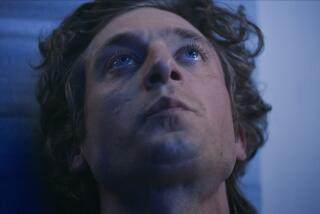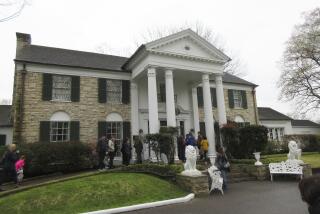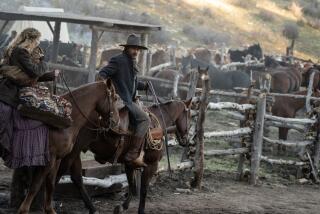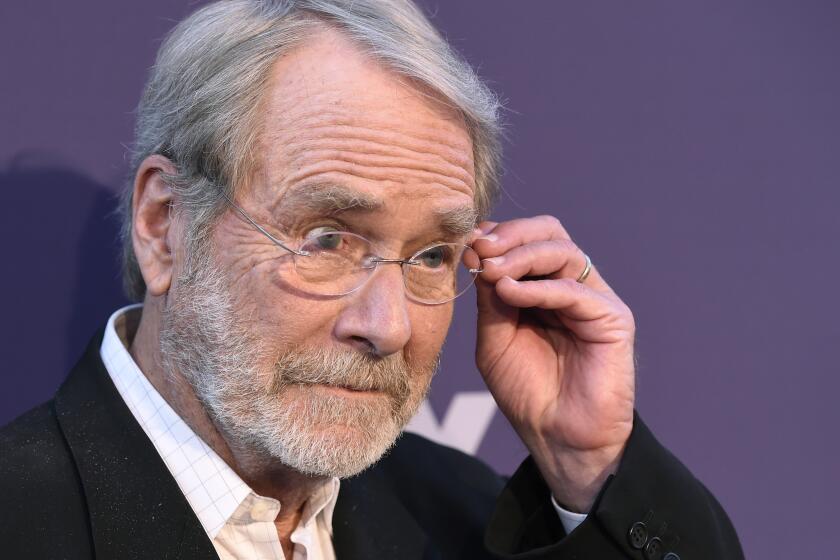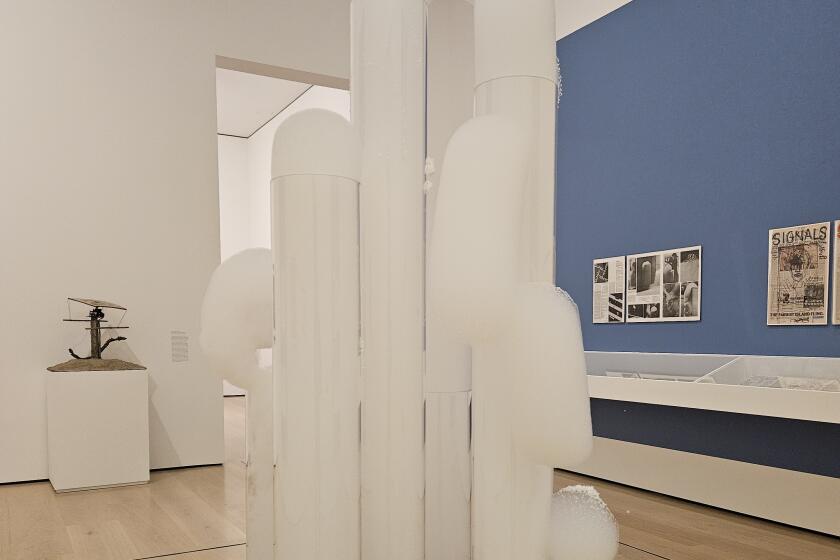A Tin Ear for Acoustics at New Kodak Theatre
It’s hard to believe, but Hollywood has an opera house. Of course, it wasn’t built because the entertainment capital suddenly lusts after culture. It anchors a new shopping center, Hollywood & Highland. Its fame comes from its most significant purpose: housing the Academy Awards ceremony. But it is horseshoe-shaped, with opera boxes that rise four tiers high.
Intended for many purposes, it can be used for staging opera (not that anything of the sort has been announced). And the first notes heard in the 3,500-seat Kodak Theatre at its opening event Friday night came from the opera literature--the overture to Glinka’s “Ruslan and Ludmilla,” performed by the Hollywood Bowl Orchestra. The popular tenor Russell Watson--who is also known as “the people’s tenor,” though he likes to call himself “the voice”--further inaugurated the house by belting out a couple of arias.
The Kodak may be just what the academy needs to facilitate television cameras hungry to peer deep into the stars’ eyes as they clutch their Oscars or avid for fresh angles on cheesy production numbers. “Until today, Oscar only had a red carpet,” an executive from the Canadian developers, TrizecHahn, who built mall and hall, said from the stage in opening remarks. “Today Oscar has a home.”
The architect David Rockwell and the hall’s technicians (no acoustician is credited) seem to have taken that mandate literally, designing an auditorium for a statuette with blind eye and tin ear. A human audience, however, is asked to endure quite a bit in this ungracious building. The walk in from the street is through a shopping galleria with piped-in pop music, the high frequencies aggressively pumped up and harshly reflected off hard surfaces.
Inside the theater, the assault never ceases. The stage is a large oval proscenium, framed, like a giant vanity mirror, by small light bulbs. Ranks of unshielded lights hang down over the stage and regularly blind the audience. Orchestra and tenor were amplified. An ungainly mixing console was among the parterre seats. Its busy staff produced sound ever loud, never true.
In fact, one would have to go back to the beginning of sound reproduction to find such primitive representation of an orchestra. Perhaps that was the Kodak’s nod to history. George Eastman (who founded Kodak) and Thomas Edison were pioneers in film technology. The mall itself is a tumescent tribute to a silent movie set. And the distorted orchestral sound one heard Friday, in which individual instruments were barely recognizable and where orchestral balance was nonexistent, proved an equivalent nod to Edison’s experiments in recording.
Watson, in his West Coast debut, came through with more immediacy than the orchestra. The 34-year-old tenor is a likable enough singer. He seems able, when he wants, to produce a healthy, clarion sound, although he had no intention of sharing it with us. Instead, ear-splitting amplification and crude electronic echo made his singing the acoustical equivalent of a pole-vaulter using a power lift to clear the bar, all the while flexing powerful leg muscles to show us their development.
The sound folks had a field day with their volume knobs during the long-held high notes in “O Sole Mio,” “E Lucevan le Stelle” from Puccini’s “Tosca,” “Somewhere” and a pop version of Verdi’s “Va Pensiero,” all the while playing the audience for suckers--the louder the electronic crescendo, the louder the ovation. In contrast to his opera-on-steroids voice, Watson has a breathy, raspy pop voice, which he turned on in such songs as “Someone Like You” and “You Are So Beautiful.”
The evening sought variety in other ways as well. An eager, unimaginative Kelly Levesque joined Watson twice in pop numbers. Watson could be counted on to change into just the right shirt for the right song. And two representatives from the World Association of Former United Nation Internes and Fellows came on stage to make him a goodwill ambassador. Credited with possessing the greatest voice since Caruso, Watson beamed and called this the proudest honor of his life.
William Hayward, Watson’s vocal coach and accompanist, conducted famous orchestral opera excerpts between, on the average, every two numbers. They were deadly dull, unhelped by garish stage lighting and the occasional puff of fog.
I wrack my memory to recall a concert in which music was worse served. Among the mall’s upcoming offerings is “The Nutcracker” next month from American Ballet Theatre. Approach with extreme caution.
More to Read
The biggest entertainment stories
Get our big stories about Hollywood, film, television, music, arts, culture and more right in your inbox as soon as they publish.
You may occasionally receive promotional content from the Los Angeles Times.
